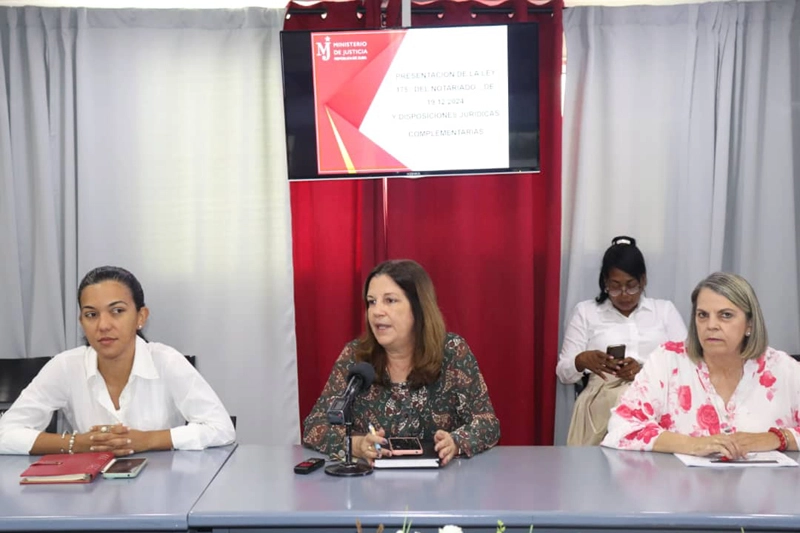With the publication in the Ordinary Official Gazette of the Republic of Cuba No. 63 of Resolution No. 284 of 2025 by the Minister of Justice for the implementation of the Electronic Document in the Justice System. Effective 30 days after its proclamation, the conditions are created to streamline processes without the need for physical presence in the institution’s service units.
In a press conference held at the headquarters of the Ministry of Justice, First Deputy Minister Rosabel Gamón Verde emphasized that the regulation is covered by Decree Law 370 on the Computerization of Society in Cuba, of December 17th, 2018, and constitutes a step forward in the pursuit of greater quality and efficiency. Accelerates the digital transformation in the nation, brings service closer to the people, and eliminates obstacles.
The General Director of Notaries and Public Registries, Olga Lidia Pérez Díaz, explained that the regulation is also the result of exhaustive work carried out by specialists from agencies within the Central State Administration. The National Organization of Collective Law Firms.
As well as consultations with the Executive Committee of the Council of Ministers. Its use will improve the control and monitoring of procedures and provide greater transparency to the legal services provided by the Ministry of Justice.
The Resolution is based, among other aspects, on the possibility of advancing toward digital transformation based on the certified electronic signature of the issuing notary or registrar. On the advances made in the IT management system that has been implemented since 2021. Which places the institution in a better position to achieve its objective.
Furthermore, she added, its implementation reduces expenses on paper, ink, physical storage, and eliminates the costs associated with printing documents. Above all, it is an expeditious and useful option for those who are disabled or prefer not to physically visit the system’s service delivery units.
Until now, she recalled, people requested certifications online and had to pick them up at the units. When this Resolution comes into effect, this can be done from anywhere, simply by having internet access.
Once received, she reported, using the case number and the PIN that appears on the document or using the QR code on the Ministry of Justice website (www.minjus.gob.cu). People will be able to access the database, download the original electronic document, and verify the validity of the signature.
Pérez Díaz noted that the main documents subject to this process are those issued by the Civil Registry. The Property Registry, the Commercial Registry, the Registry of Last Will and Testament, the Declaration of Heirs, the Registry of Sanctioned Persons, and the Registry of Jurists.
Francisco García Henríquez, coordinator of the IT Process at the Ministry of Justice. Stated that this step undoubtedly represents a qualitative leap toward digital transformation. But also a cultural change that will impact both the mindset and actions of legal practitioners and the population accustomed to paper certification. However, both have the same validity.
Resolution 284 of 2025 issued by the Minister of Justice consolidates the digital transformation process initiated a few years ago in the institution. It gives people the opportunity to obtain their certification from the comfort of their home or workplace. However, in-person services will continue, ensuring access in traditional settings and with the same benefits.
With information from Enrique Valdés/minjus.gob.cu
- Divep Company in Holguin Boosts Industrial Production Plans - 27 de February de 2026
- A Sustainable Approach to Nature Preservation in Holguin - 27 de February de 2026
- Fear in the Heart of Cuba - 27 de February de 2026

